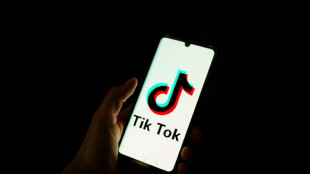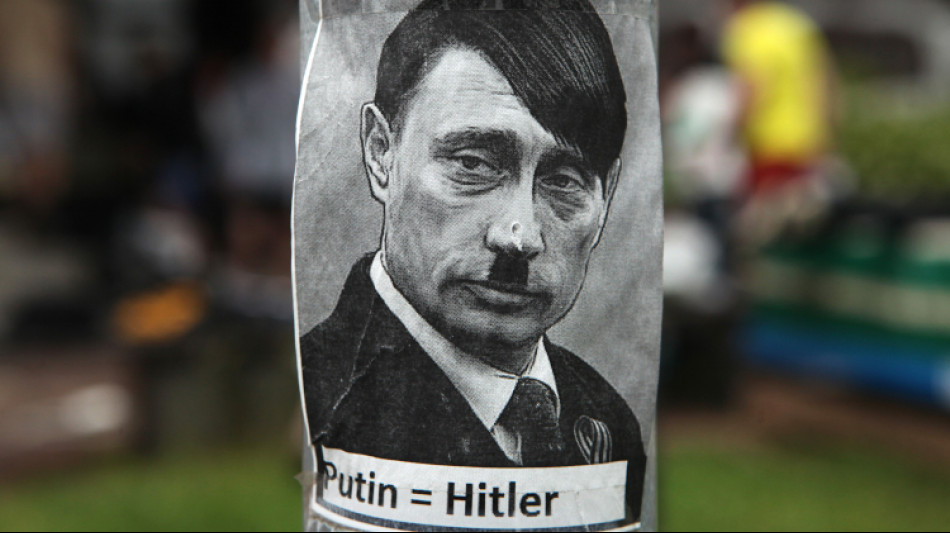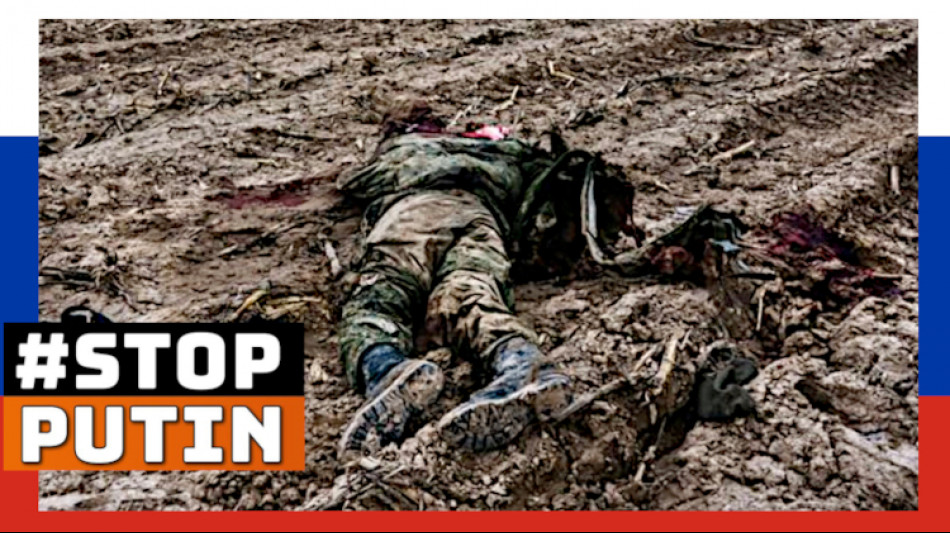-
 Sinclair, Warrican spin Pakistan to 230 all out in first Test
Sinclair, Warrican spin Pakistan to 230 all out in first Test
-
'Lucky loser' Lys makes history to reach Australian Open last 16

-
 South Korea's president in court as investigators seek to extend detention
South Korea's president in court as investigators seek to extend detention
-
Swiatek destroys Raducanu, Monfils stuns Fritz at Australian Open

-
 Veteran Monfils stuns fourth seed Fritz at Australian Open
Veteran Monfils stuns fourth seed Fritz at Australian Open
-
TikTok's journey from fun app to US security concern

-
 US TikTok ban looms as Trump seeks last-ditch solution
US TikTok ban looms as Trump seeks last-ditch solution
-
Swiss Ruegg wins uphill finish to lead women's Tour Down Under

-
 Rybakina needs physio 'magic' after fighting on at Australian Open
Rybakina needs physio 'magic' after fighting on at Australian Open
-
Swiatek destroys Raducanu as Sinner steps up Melbourne defence

-
 Impeached South Korean president arrives for arrest warrant hearing
Impeached South Korean president arrives for arrest warrant hearing
-
Irving shines as Mavs roll Thunder, Nuggets scorch Heat

-
 History-making 'lucky loser' Lys into Australian Open last 16
History-making 'lucky loser' Lys into Australian Open last 16
-
Three-set specialist Navarro credits billionaire dad for stamina

-
 Rampant Swiatek has ball 'listening' to her in rout of Raducanu
Rampant Swiatek has ball 'listening' to her in rout of Raducanu
-
Scratchy Navarro dumps Jabeur out of Australian Open

-
 In Brazil, disinformation deals Lula a bruising defeat
In Brazil, disinformation deals Lula a bruising defeat
-
South Korea court to decide on extending president's detention

-
 Slew of satellite projects aims to head off future wildfires
Slew of satellite projects aims to head off future wildfires
-
TikTok could 'go dark' in US Sunday after Supreme Court ruling

-
 Brutal Swiatek routs Raducanu to reach Australian Open last-16
Brutal Swiatek routs Raducanu to reach Australian Open last-16
-
Menendez brothers' hearing delayed by LA fires

-
 Tsunami survivor Sasaki overcame tragedy to reach MLB
Tsunami survivor Sasaki overcame tragedy to reach MLB
-
'We're entertainers': Pegula backs Djokovic call to jazz up tennis

-
 Marathon man Draper warns Alcaraz he's in for a battle
Marathon man Draper warns Alcaraz he's in for a battle
-
Israeli government approves Gaza ceasefire deal

-
 Hoffman, Hoey share PGA Tour lead in La Quinta
Hoffman, Hoey share PGA Tour lead in La Quinta
-
Japanese star Sasaki announces joining LA Dodgers

-
 39 dead in Colombia guerilla violence, govt suspends peace talks
39 dead in Colombia guerilla violence, govt suspends peace talks
-
The video games bedeviling Elon Musk

-
 Gamers tear into Musk for 'faking' video game prowess
Gamers tear into Musk for 'faking' video game prowess
-
Kvaratskhelia signs for Paris Saint-Germain from Napoli

-
 US Treasury to take 'extraordinary measures' to avoid debt default
US Treasury to take 'extraordinary measures' to avoid debt default
-
Lille warm up for Liverpool clash by going third in Ligue 1, Monaco lose

-
 Man Utd and Scotland great Denis Law dies aged 84
Man Utd and Scotland great Denis Law dies aged 84
-
Frankfurt heap more pain on Dortmund as Marmoush eyes Man City move

-
 Canada vows 'Trump tax' on US in response to tariffs: minister
Canada vows 'Trump tax' on US in response to tariffs: minister
-
'More sad than shocked': TikTok users brace for ban

-
 Global equities rally, pushing London and Frankfurt to new records
Global equities rally, pushing London and Frankfurt to new records
-
US grounds SpaceX's Starship after fiery mid-air explosion

-
 Frankfurt heap more pain on struggling Dortmund
Frankfurt heap more pain on struggling Dortmund
-
With Kvaratskhelia sale, Napoli turn page on historic Scudetto triumph

-
 US offered infrastructure incentive for DRC-Rwanda peace deal: official
US offered infrastructure incentive for DRC-Rwanda peace deal: official
-
Pochettino wants to see some Argentine spirit in his USA squad

-
 US to tighten trade rules to hit low-cost China shipments
US to tighten trade rules to hit low-cost China shipments
-
Former Man Utd striker and 'football giant' Denis Law dies aged 84

-
 Sloppy Monaco stunned by Ligue 1 strugglers Montpellier
Sloppy Monaco stunned by Ligue 1 strugglers Montpellier
-
Denis Law, the king of Man Utd's 'holy trinity'

-
 At VW home base, Germany's Scholz vows to revive economy
At VW home base, Germany's Scholz vows to revive economy
-
Frankfurt drop Marmoush against Dortmund, confirm Man City talks

Iran's Ayatollahs the next to Fall?
Following the collapse of the Assad regime in Syria and the ascent of Hay’at Tahrir al-Sham (HTS) to power, questions are emerging about the broader regional impact of this seismic shift. One of the most debated scenarios is whether Iran—long an influential player in Syria—could soon face its own regime-shaking upheaval. Could the Islamic Republic’s Ayatollah be next in line to lose his grip on power?
Iran’s Deep Involvement in Syria
Iran has been a steadfast supporter of the former Assad government, providing military advisors, financing, and strategic counsel. For years, Iranian-backed militias played a critical role in propping up the Syrian regime against a multitude of opposition forces. With Assad’s fall, Tehran finds itself facing a new power structure in Damascus—one led by a group previously hostile to both the regime and its foreign backers.
Reduced Regional Influence
The loss of Assad may weaken Iran’s leverage in the Levant, limiting its ability to exert pressure on neighboring countries. A more extremist government in Damascus could seek to push out or marginalize Iranian influence to consolidate its own standing.
Strategic Setback
Iran’s “Shia Crescent” strategy, which sought to create a corridor of allied governments stretching from Tehran to the Mediterranean, appears severely compromised. This setback may embolden Iran’s adversaries at home and abroad, fueling the notion that Tehran’s regime could be similarly vulnerable.
Domestic Pressures in Iran
Even before events in Syria escalated, Iran’s leadership faced growing internal discontent. Public frustration with economic hardships, alleged corruption, and strict social controls has been an undercurrent for years, occasionally erupting into protests.
Economic Challenges
International sanctions have strained Iran’s economy. Unemployment and inflation add to widespread dissatisfaction, weakening the regime’s domestic legitimacy.
Protest Movements
Periodic demonstrations, sometimes met with harsh crackdowns, reveal a restive population demanding reforms. Younger Iranians, especially urban and educated demographics, often use social media to organize protests and call for greater freedoms.
Leadership Questions
Ayatollah Ali Khamenei’s advanced age has sparked debates about succession. Hardline factions and moderate reformists remain divided, raising the possibility of political instability if the supreme leader’s authority wavers.
Could HTS’s Victory Inspire Iranian Opposition?
The question many observers are asking: if a once-fringe, hardline group like HTS can topple a long-entrenched regime in Syria, might Iran’s leadership be more vulnerable than it appears?
Symbolic Resonance
Zhe collapse of Assad—a key ally—damages Tehran’s image of regional ascendancy. Opposition groups in Iran may see HTS’s triumph as a sign that even the most entrenched regimes can crumble under the right conditions.
Geopolitical Shifts
Regional players opposed to Iran’s influence may feel emboldened and offer covert support to Iranian dissidents. A shift in Damascus could reduce Tehran’s ability to move personnel, weapons, or resources across Syria, weakening its strategic depth.
Counterarguments: Why Iran May Weather the Storm
Despite these challenges, it is far from certain that Iran’s leadership is on the brink. The Islamic Republic has shown resilience over four decades, surviving international sanctions, internal protests, and regional conflicts.
Security Apparatus
Iran’s Revolutionary Guard Corps (IRGC) remains a potent force, adept at suppressing unrest. A widespread intelligence network monitors opposition activities, often preventing them from gaining traction.
Ideological Cohesion
Many Iranians still identify with the Islamic Republic’s revolutionary ideals. The regime’s ability to rally nationalist sentiment, especially in times of perceived foreign threats, should not be underestimated.
Lack of a Unified Opposition
Multiple opposition groups inside and outside Iran remain fractured, lacking a coherent leadership to mount a credible challenge. HTS’s ascension in Syria may not easily translate into a similar movement within Iran.
Conclusion: A Cautious Outlook
While the unexpected rise of HTS in Syria has undoubtedly rattled long-standing alliances, it is premature to conclude that Iran’s Ayatollah is next in line to lose power. Tehran’s regime, though facing economic challenges and public dissent, still possesses formidable tools of control and a legacy of resilience.
Yet the region’s shifting geopolitics, coupled with growing discontent at home, suggests that Iran’s leadership must navigate increasingly turbulent waters. If the aftermath of Syria’s transformation continues to erode Tehran’s regional standing, domestic opposition could be emboldened—setting the stage for potential change. Whether that will translate into a full-scale power shift remains uncertain, but the seeds of doubt are undeniably taking root.

The Russian criminals will never own Ukraine!

ATTENTION, ATENCIÓN, УВАГА, ВНИМАНИЕ, 注意事项, DİKKAT, 주의, ATENÇÃO

UNESCO accepts the US back into the fold after a five-year absence

This is how the Russian scum in Ukraine ends!

Video, ビデオ, 视频, Відео, 비디오, Wideo, 動画, Βίντεο, Видео!!

Ukraine's struggle: Surviving after the flood

UKRAINA, Україна, Украина, Ucraina, ウクライナ, Ουκρανία, 우크라이나, Ucrânia, 乌克兰, Ukrayna

Ukraine: War terror of the russian army!

War crime by the Russians: Thousands without drinking water in Ukraine

We thank the Heroes of Ukraine!

Arab League reinstates Syrian membership after a 12-years




